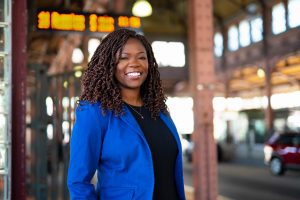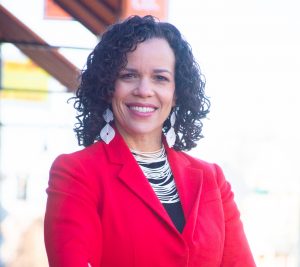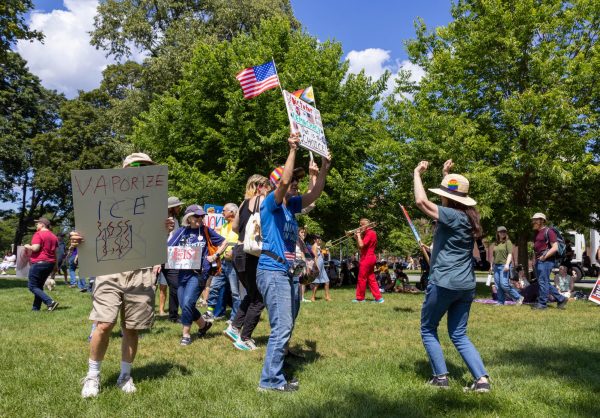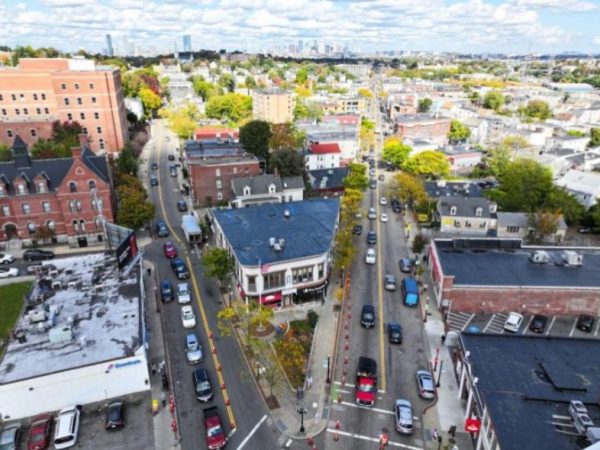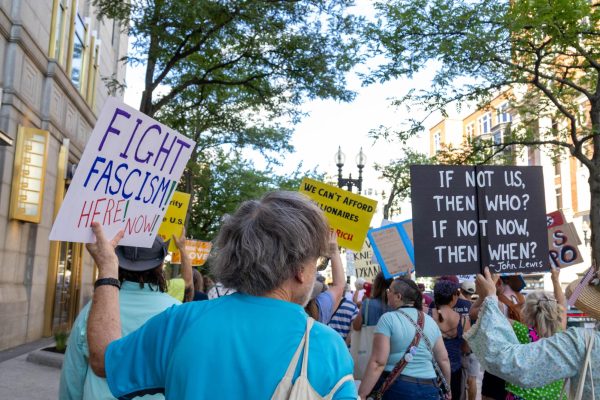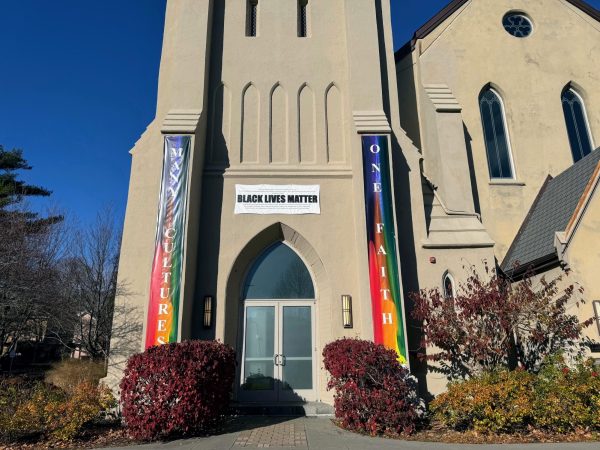After two years, Berkeley Community Garden reopens to the public
Earlier this month, lifted pandemic restrictions allowed members of the South End’s historic Berkeley Community Garden, or BCG, to gather for their first annual Spring Cleanup potluck since 2019.
On Apr. 9, roughly 30 of the association’s 145 members and their families gathered on-site at the garden, located at the corner of Tremont, East Berkeley and Shawmut Streets, to commence its public reopening. Open to all paying gardeners, the cleanup gave gardeners the opportunity to ready their plots for the summer growing season. More importantly, it means gardeners could mingle with neighbors and friends — something that has been missing from their community during the pandemic.
John McLachlan is a volunteer organizer and has been a member of the BCG for over 20 years, known for his lilac trees. He said COVID-19 restrictions were difficult for the community, forcing them to limit garden access to members only and putting social activities on hold.
“The saddest part is, we had to keep the garden locked. We try and keep it open during the days in the summer, so neighbors can come through,” McLachlan told The Scope. “We had no events whatsoever; it was like, ‘clean on your own, as you can.’”
2022 has brought hope for McLachlan and his fellow green thumbs, though.
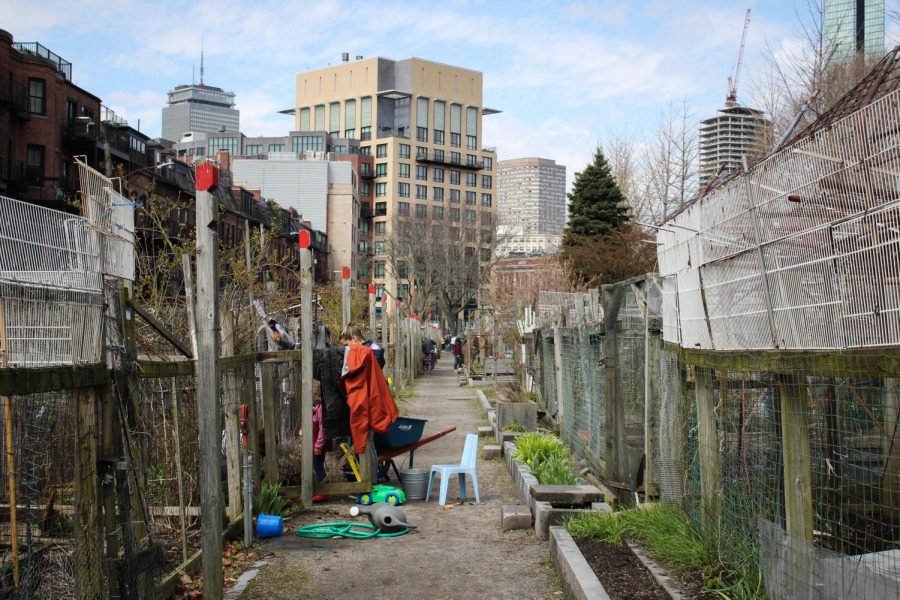
“This year, it seems to be going better, and we’re having our spring cleanup for the first time,” he said. “Slowly, we’re reopening, like a spring blossom!”
Across the garden, gardeners took advantage of being back outside, kickstarting their planting projects and make up for lost time with their neighbors.
Emily Pierce has been a member of the BCG since 2017. She came to the cleanup with her family, including her mother, Dorothy Kelly, and two young daughters. Together, they worked to clear out their plot for the season.
“We used to live over on Harrison Ave., right by here, so we walked through all the time when [the children] were little and they loved it,” said Pierce. She believes the best part of the BCG is its ability to bring different people together.
“I think what’s neat about it is like, you have a lot of different types of people,” she said.
“Some people have sort of like a little sitting area to come and relax, and some people have basically a farm, farming all produce. There’s little kids and there’s all different generations.”
There’s a reason for that. The current location of the BCG was once a series of row houses, torn down in the 1950s and 1960s as part of the city’s urban renewal plans. In the 70s, the lot, which sits on the border between the South End and Chinatown, sat empty and unused. To take advantage of the property, nearby Chinese community members began “guerilla gardening” — dividing the land among family and friends and using it to grow produce.
Over the years, development threatened to push the gardeners out. Luckily, the establishment of land trusts — including the Trustees of Reservations, which acquired the BCG in 2015 — ensured a secure future for community gardens across the city.
Even under this ownership, the influence of the Chinese community is still very present at the BCG. Many of the plots are still occupied by the original gardeners or by their families. Their crops often feature unique produce used in Chinese cooking, such as bitter melon.
“A lot of the Asian ladies grow these melons, and they hang above [the gardens]; they use this vertical gardening technique,” says Sarah Hutt, a 25-year member of the BCG and volunteer organizer. “Some of these women have had squash bigger than them!”
Since the guerilla gardening days, the Berkeley Community Garden has become something of an exclusive club in the neighborhood. With only 145 plots, space in the garden is limited. So long as they continue to reside in Boston and pay their annual fee of $75, members are free to keep their plot year-round, meaning spaces for new gardeners are few and far between. When spots do open up — usually because the garden was too much work or someone moved away — the BCG gives them out randomly, hosting a lottery every March to allocate plots. Those unsuccessful are added to a waiting list and are encouraged to re-enter the lottery next year.
“The first year, we tried out and got a great plot,” said Pierce. “So we were super excited about that.”
Given the garden’s friendly atmosphere, it’s easy to see why so many are eager to participate. This sense of community, McLachlan said, is what keeps gardeners coming back — some of them for nearly 40 years.
“It’s about being out here with your neighbors,” he said at the potluck. “I wouldn’t know any of these people if it weren’t for the garden.”



